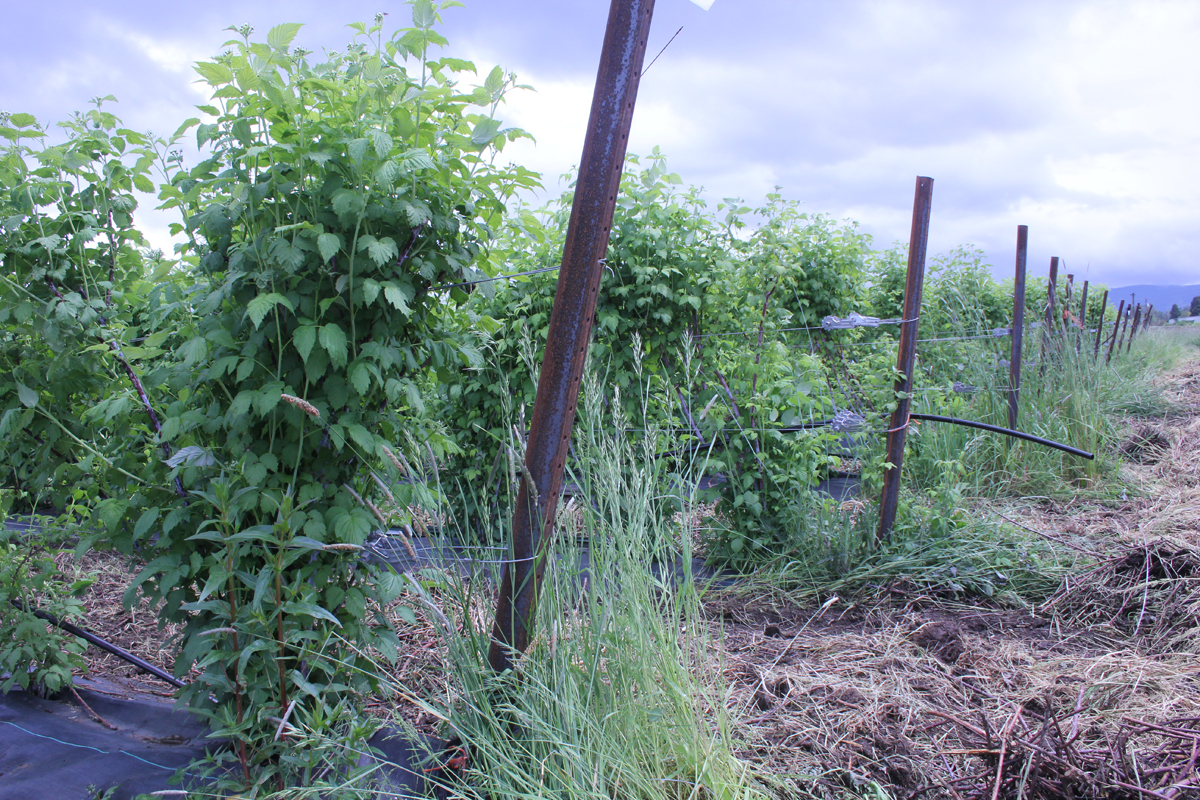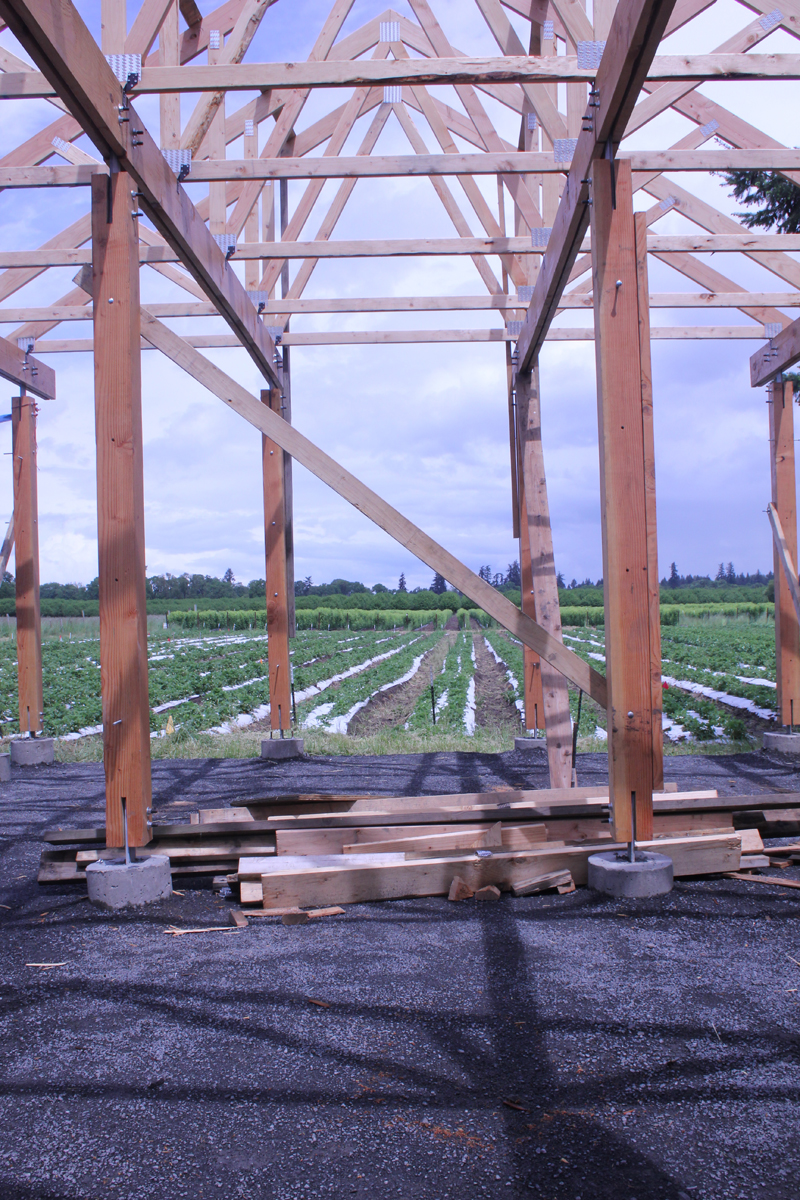Story & Photos by Anais Keenon
The heart of the Small Farmers Project is a plot of land tucked away in northern Eugene out on east Beacon Drive. Cars drive down a short gravel road to two small buildings. One is a completed shed holding miscellaneous odds and ends; the other, a simple skeletal frame. It’s hard to resist looking at the mesmerizing rows of strawberry plants and Blackcap raspberry bushes, still holding the promise of ripe and sweet summer fruit yet to come.
The Small Farmers Project is an organic-based, cooperative farm currently owned and run by seven local, low-income Latino families. They make all the decisions about the farm: what equipment to buy, what type of plants to grow, how to set up and take care of the entire place. But the idea of the farm itself started back in 2007, when local nonprofit Huerto de la Familia (translated as the Family Garden) and the families involved submitted a proposal to Heifer International. Heifer ended up providing the initial funds for the project while Huerto helped find and train the involved families. In 2008, the land was leased and the farm began.
“When they first started, there was nothing but grass in this field. It’s amazing to see what’s there today,” says Sarah Cantril, the Executive Director of Huerto de la Familia, as she looks over the fruit fields. After a glance up at the overcast skies, she adds, “Though this season has been a bit slow. This time last year, the strawberries were growing and the flowers were blooming on the raspberry bushes.”
While Huerto de la Familia and Heifer International provided the initial support to establish the farm (both still help out), another local business chips in labor support. Organically Grown Company works with the farmers to package, market, and distribute strawberries and raspberries to stores from Ashland to Seattle. In fact, the farmers specifically chose to grow Blackcap raspberries because Organically Grown said they would purchase the entire crop for distribution across the Pacific Northwest.
“We wanted something that didn’t have a lot of local competition, something that other growers weren’t doing, and thus we suggested Blackcap raspberries,” explains Tom Lively, an account representative for Organically Grown Company. “Blackcap raspberries used to be a popular food crop in Oregon, but then fell out of favor. It was a crop that people just forgot about. Now there’s been some resurgence.”
Above all, the Small Farmers Project is a cooperative farm that works with all facets of the Eugene community. Churches have held fundraisers for the group, local schools have brought student on field trips, and even the University of Oregon has chipped in through a student architecture organization called designBridge. After first hearing about the project in 2010, the student group designed a storage shed for the farm’s new tractor and an adjacent walk-in refrigerator.
“Probably the greatest hurdle was the stipulation that the entire structure needed to be portable,” says Alexander Froehlich, student director-elect of designBridge. “This was because the farmers’ lease will end in less than five years and they all aspire to devote more time to farming on larger pieces of land.”
The pre-design process was completed in late 2010, while the design and construction planning took place over the course of the UO’s 2011 winter term. Come spring, designBridge and farm members devoted themselves to constructing the building they had designed. By late May, the frame of the building had risen in front of the strawberry fields, soon to become the new central building for the farm and part of the farm’s promising future.
Soon, the raspberries will come and Organically Grown will send them all over the Northwest. The strawberries will ripen and signal the beginning of the summer, and then, at the end of this month, the U-pick for the berries will begin, welcoming everyone to come enjoy the fruits of this farm’s labor.









